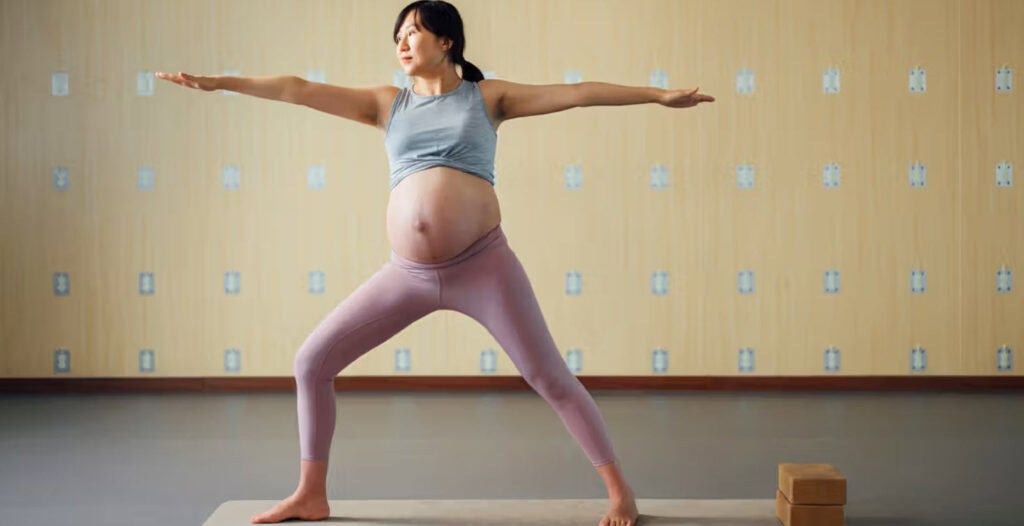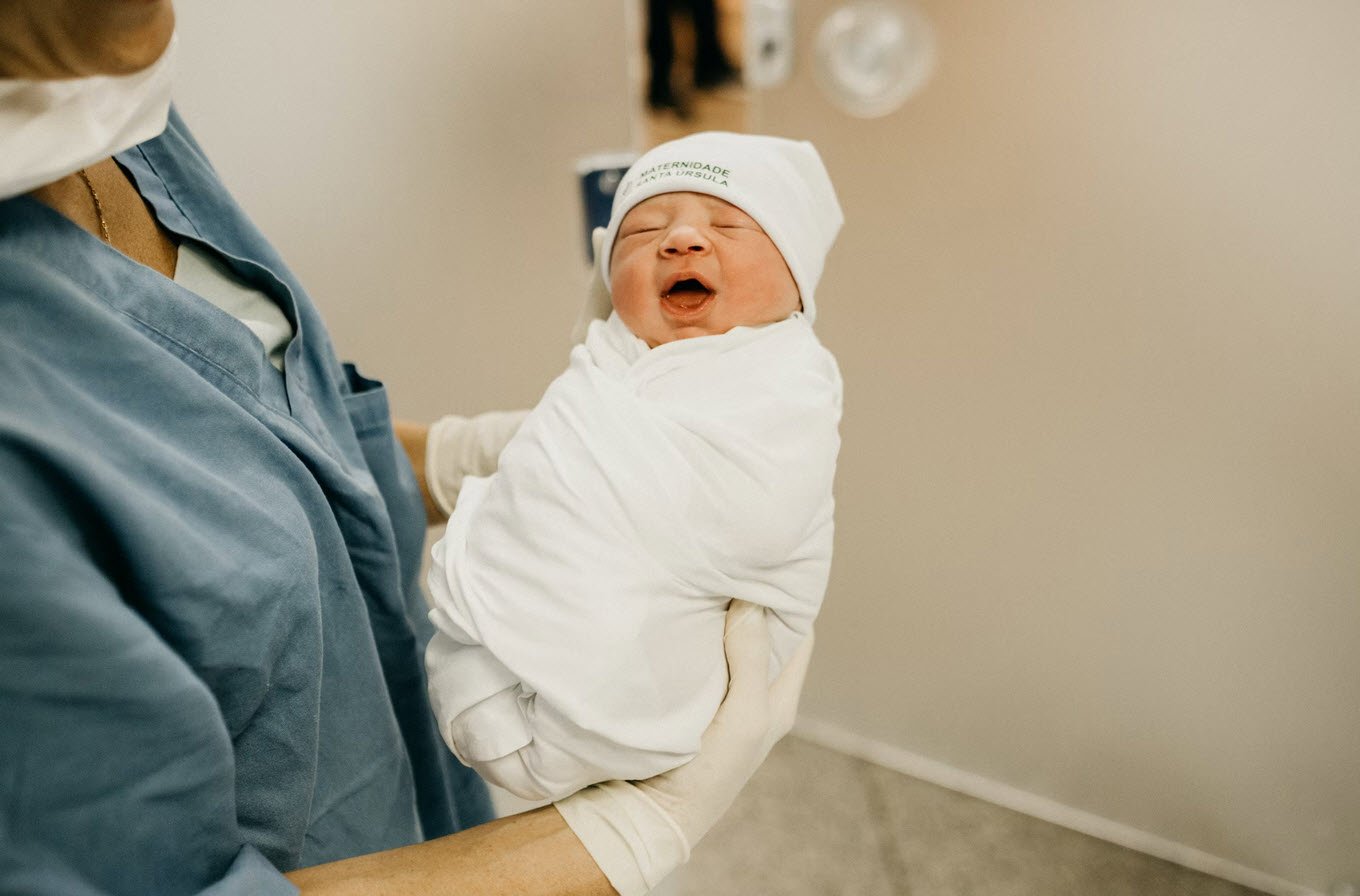
Take a look around your next yoga class and notice that each person, each body, is different. It might be totally appropriate to ask one person in class to place a leg behind their head because their bodies have demonstrated the ability to do so.
On the other hand asking that same thing to the person next to them who has half their flexibility would be completely irresponsible and would cause injury. This logic that you already use in your yoga classes with non-pregnant people carries over to working with pregnant women.
There are some pregnant women who can easily move into poses that other women in the class would hurt themselves attempting. This is why it is so important for pregnant women to listen to their bodies and only do poses that feel good and not try any new advanced poses for the first time while pregnant.
It is also important that pregnant women start slowly and take their first class at about 50-80% of what they think their limit is.
Exercising While Pregnant
Everyone agrees that staying active and exercising while pregnant is the best way to maintain a woman’s health and fitness and prepare her for the often strenuous and challenging rigors of childbirth.
But starting a prenatal exercise program can be daunting. In the first trimester (conception to 3 months) women often experience extreme fatigue and varying degrees of nausea or “morning sickness” (which is absolutely not confined to mornings.) Most healthcare providers and prenatal fitness experts will agree that women should listen to their bodies and rest during this transitional period.
Women, in general, tend to not feel like exercising much. For those who were previously very active this can be a bit disconcerting.
Getting Back to a Routine
Once the first trimester is over, most women have spent a couple of months out of an exercise routine and are hesitant to start something new or resume their past exercise routine. I have many women show up in the beginning of their second trimester feeling guilty and concerned that they have done nothing for 2-3 months and intimidated to start prenatal yoga.
It seems to ease their minds when I tell them that 90% of my students are in the same boat. They come to their first class after doing virtually nothing during their first trimester; this is entirely appropriate since the number one rule to any prenatal activity is, “If it doesn’t feel good, don’t do it!”
Start Slowly – Listen to your Body
I tell my students who have been out of an exercise routine for a while that when they start back up they should start very slowly, start with 15 minutes once or twice a day and see how that feels for a few days. Because their bodies have been changing over the last few months and are changing every day, the things that felt great before they were pregnant might not feel good at all now.
A simple twist or side stretch might feel uncomfortable. Every woman is different, some women might need a few weeks of building up their exercise routine before they can do a full class, others can do a full class right away, starting slowly and listening to their bodies.
Consult your Doctor or Midwife
The question I get over and over is, “When is the best time to start a prenatal yoga routine?” and my answer is that there is no one right way when it comes to prenatal fitness. Every woman is different and is ready to start exercising when her body tells her it is time as long as she has no complications with her pregnancy and has gotten the OK from her doctor or midwife.
This typically occurs at the beginning of the second trimester, but some women can exercise during their first trimester or not start until the third trimester.
My advice is if it feels good to exercise during your first trimester, take it easy, don’t push yourself, and consult with your doctor or midwife.
Once More…Listen to your Body
We have gotten so accustomed to “asking the experts” and getting the latest research (which almost always contradicts the previous research) that we have lost the connection with our own bodies. Pregnancy is a great time for a woman to reconnect with her body, to get in touch with what feels good for her and what doesn’t, whether it be food, exercise or any activity that she participates in, doing it mindfully and paying attention. Your body has a lot to say!
You may also like:- Pregnancy: After Birth: Should You Return to Work?
- What Foods to Skip While Breastfeeding?
- Managing Exposure to Chickenpox and Rubella in Pregnancy
- Common Health Issues in Babies After Birth
- Common Issues During the Second Month of Pregnancy
- An Intimate Pregnancy – A Brief Guide
- Urinary and Vaginal Problems During Pregnancy – A Brief Guide
- 8 Common Congenital Problems in Newborns You Should Know
- 6 Common Issues During the First Month of Pregnancy
- The Do’s and Don’ts of Safe Exercise in Pregnancy








